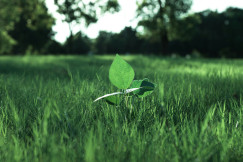Articles
27 May 2025
Transformative Digital Transition Highlights April and May 2025
Articles
27 May 2025
Transformative Digital Transition
Proximity and social economy
Agri-food
+63 more
Login / create an account to be able to react
-
5

These highlights showcase the transformative impact of digital innovation and collective leadership in the social economy. As cooperatives and social enterprises navigate the challenges of digital transition, collaboration and knowledge-sharing remain key drivers of success. Looking ahead, strengthening these efforts will be essential to fostering resilience, inclusivity, and sustainable growth across various sectors.
Topics
Albania
Armenia
Austria
Belgium
Bosnia and Herzegovina
Bulgaria
Croatia
Cyprus
Czechia
Denmark
Estonia
EU-27
Finland
France
Georgia
Germany
Greece
Hungary
Iceland
Ireland
Italy
Kosovo
Latvia
Liechtenstein
Lithuania
Luxembourg
Malta
Moldova
Montenegro
Netherlands
North Macedonia
Norway
Poland
Portugal
Romania
Serbia
Slovakia
Slovenia
Spain
Sweden
Switzerland
Türkiye
Ukraine
Academic / Research and VET Institutions
Business Support Organisation
Company with 250 or more employees
Cluster Organisations
Consumer Organisations
Cultural and Heritage Organisations
Destination Management & Marketing Organisations
EU Institutions
Financial Institutions and Investors
Industry Associations and Chambers of Commerce
International Organisations
Local Authorities
Media / Journalist Organisations
National authorities
Networks and Federations / Confederations
NGOs / Non-profits
Notified Bodies
Regional Authorities
SMEs (a company with less than 250 employees)
Social Economy Entity
Trade Unions
Other
-
Thematic area
-
-
Transformative Digital Transition
-
-
Interlinkages with other sectors
-
-
Proximity and social economy
-
Agri-food
-
Construction
-
Cultural and creative industries
-
Digital
-
Electronics
-
Energy intensive industries
-
Energy-renewables
-
Health
-
Mobility, transport, automotive
-
Retail
-
Textile
-
Tourism
-
Aerospace and defence
-
-
Action areas and keywords
-
-
15-minute city
-
Access to Finance
-
Access to technology
-
Addressing capacity and skills gap
-
Advancing gender equality and safety at work
-
Blue Economy
-
Boosting digital skills by - and in the social economy
-
Buy social
-
Certification, labelling and self-regulation
-
Circular Economy
-
Clusters (including Cluster of social and ecological innovation)
-
Corporate social responsibility (CSR)
-
Creating financial incentives and supportive regulation for green and circular social economy business models
-
Data Maturity and data driven business models
-
Data sharing, Data management & Code of Conduct
-
Digital Platforms
-
Digital social innovation
-
Economic democracy
-
Education
-
Future workplaces
-
Greening infrastructures and business operations
-
Housing
-
ICP rights & workers involvement
-
Industrial relation and social dialogue
-
Innovation
-
Innovation as enabler for green transition and business development in the social economy
-
Internationalisation
-
Local employment
-
Local Green Deals, green business communities and citizens’ initiatives
-
Local Markets
-
Micro mobility
-
New business models
-
New business models – the platform economy
-
New European Bauhaus
-
Other action area
-
Public and private tech partnerships and support
-
Reinforcing Business to Business collaboration for greener and circular value chains
-
Responsible (Public) Procurement
-
Smart mobility
-
Social Finance
-
Socially oriented territorial regeneration
-
Strategy for Data
-
Supporting Digital Social Innovation & Tech for Good entrepreneurship
-
Sustainable Finance
-
Tech for Good
-
-
Ecosystem focus
-
-
Proximity economy
-
Social economy
-
-
Scope of activity
-
-
International
-
Local/neighbourhood
-
National
-
Regional
-
Share
Osuny: Ethical, Inclusive and Sustainable Web Design for the Common Good
Osuny is a free, open-source content management system developed by the Noesya cooperative, aiming to deliver sustainable, accessible, and secure digital services. Used for more than 80 websites, it fosters collaboration, digital sobriety, and open science. Osuny is built to minimise ecological impact, ensure accessibility, and offer a secure digital environment for users, particularly within education and research institutions.
Sopotniki (meaning “co-travellers” in Slovene) is a non-profit initiative providing free transport services for elderly people in rural areas of Slovenia. Founded in 2014, Sopotniki addresses social isolation and mobility barriers by connecting older adults with trained volunteer drivers who offer door-to-door rides. The service enables access to essential services such as healthcare, shopping, and social activities, contributing to improved well-being and community cohesion.
Orange Data Mining is an open-source data visualisation and analysis tool developed by the Bioinformatics Laboratory at the University of Ljubljana, Slovenia. Designed to make machine learning and data science accessible to both novices and experts, Orange offers an intuitive visual programming interface that enables users to build data workflows through a simple drag-and-drop environment. It supports a wide range of tasks, from data cleaning and exploration to complex predictive analytics.
The Nova SBE Social Database (NSD) is an open-access data platform developed by the Nova School of Business and Economics in Portugal. It was established to support evidence-based decision-making in social policy by providing access to reliable, up-to-date data on a wide range of social indicators. The NSD serves as a valuable resource for researchers, policymakers, civil society, and social innovation practitioners.
Camp Mapping: Coordinated Care for Migrants Through Digital Solidarity
Camp Mapping is a collaborative digital platform designed to improve coordination among associations providing aid to migrants living on the streets. Developed by Utopia 56, the tool enables volunteers to log activities and share real-time data, helping prevent duplication and ensuring fair distribution of resources. Its no-code, accessible design promotes inclusivity, equity, and cooperation among multiple actors in the field of social support
Comments (0)
See also
-
4
Working Conditions and Governance Highlights April and May 2025
- Categories
- Proximity and social economy Agri-food Construction +62 more
-
4
Partnerships Highlights April and May 2025
- Categories
- Proximity and social economy Agri-food Construction +62 more
-
3
Content Highlights: Regenerative Green Transition April and May 2025
- Categories
- Proximity and social economy Agri-food Construction +62 more




